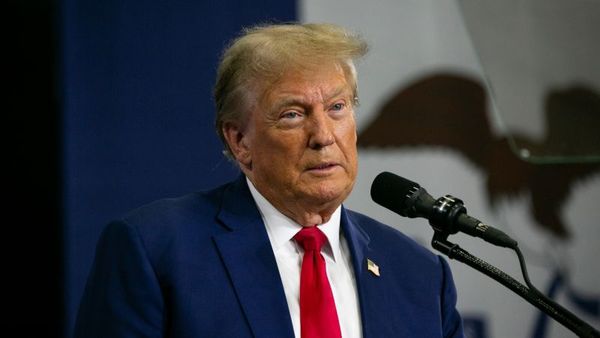A recent ruling by the DC Circuit Court of Appeals has stated that former President Donald Trump can be sued. This decision has significant implications for various lawsuits against Trump related to the 2020 election. The lawsuits, brought by Capitol Police officers and Democrats in Congress, accuse Trump of contributing to the events of January 6th, 2021.
The court’s opinion, written by Chief Judge Sri Srinivasan, clarifies that a president does not have immunity for everything they say or do. The opinion states that when a president acts outside the functions of their office, they are subject to civil suits like any other private citizen. This unanimous decision by the judges paves the way for the lawsuits against Trump to proceed.
The lawsuits, seeking recovery from emotional distress and physical injury resulting from the attack, can now move forward. Additionally, several other lawsuits against Trump may also come out of dormancy as a result of this ruling. The complaints are based on a federal law prohibiting individuals from conspiring to prevent someone from holding federal office.
It is worth noting that this decision only applies to civil cases, and Trump still has the option to seek additional appeals. However, for now, these lawsuits brought by Capitol Police officers and members of Congress can continue. Two of the lawsuits were filed by Democratic House members, while the third was filed by Capitol Police officers.
These lawsuits allege that Trump and others threatened the lawmakers as part of a conspiracy to stop the congressional session that would certify the 2020 presidential election. The plaintiffs argue that Trump should be held responsible for directing the assaults. Trump had tried to dismiss the lawsuits based on presidential immunity, but the DC District Court rejected this argument.
The appeals court’s decision may also have implications for Trump’s federal criminal case surrounding the 2020 election, although it specifically applies to civil cases. It is important to note that Trump can still contest the facts of the case as the lawsuits move forward and may have the opportunity to make additional arguments around immunity.
This ruling clarified that when a president is running for a second term, they are acting as an office-seeker rather than an office-holder. This distinction means that certain actions taken during a campaign, such as attending private fundraisers, hiring and firing campaign staff, and delivering political speeches, may not be protected by presidential immunity.
Lawyers representing injured Capitol Police officers and Democratic members of Congress who are suing Trump have welcomed this decision. After a year of being on hold, they see this ruling as an important step towards holding Trump accountable for the events of January 6th. They believe that this decision brings them one step closer to justice and the accountability that is necessary for healing.
This ruling signifies that former President Trump is not immune from facing consequences for his actions and attempts to subvert democracy. The fight for justice continues as these lawsuits proceed, and the American people are one step closer to holding those responsible for endangering democracy to account.
This story has been updated with additional reporting.





